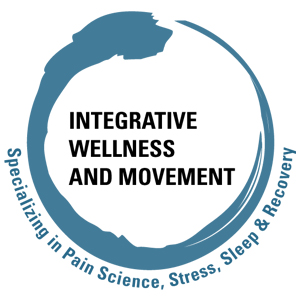This was originally a post on Integrative Wellness and Movement’s Facebook page, but so many people asked me that I’ve written a short summary with reference links here.
Hand hygiene is super important. Must have at LEAST 60% ALCOHOL to be effective.
Some chemicals used in hand sanitizers in the past have been found to be harmful and/or carcinogenic. The FDA has banned the use of these chemicals in hand sanitizers. Companies that make hand sanitizers have had to develop new formulations.
List of banned chemicals in the hand sanitizers are:
- Benzethonium chloride
- Chloroxylenol
- Chlorhexidine gluconate [1]
- Cloflucarban
- Fluorosalan
- Hexachlorophene
- Hexylresorcinol
- Iodine complex (ammonium ether sulfate and polyoxyethylene sorbitan monolaurate)
- Iodine complex (phosphate ester of alkylaryloxy polyethylene glycol)
- Methylbenzethonium chloride
- Nonylphenoxypoly (ethyleneoxy) ethanoliodine
- Phenol (equal to or less than 1.5 percent or greater than 1.5 percent)
- Poloxamer iodine complex
- Povidone-iodine 5 to 10 percent
- Secondary amyltricresols
- Sodium oxychlorosene
- Tribromsalan
- Triclocarban
- Triclosan
- Triple dye
- Undecoylium chloride iodine complex
In addition, other chemicals for consideration were:
- Polyhexamethylene biguanide
- Benzalkonium cetyl phosphate
- Cetylpyridinium chloride
- Salicylic acid
- Sodium hypochlorite
- Tea tree oil
- Combination of potassium vegetable oil solution, phosphate sequestering agent, and triethanolamine
Directly quoted from “Safety and Effectiveness of Consumer Antiseptic Rubs; Topical Antimicrobial Drug Products for Over-the-Counter Human Use”:
(https://www.federalregister.gov/documents/2019/04/12/2019-06791/safety-and-effectiveness-of-consumer-antiseptic-rubs-topical-antimicrobial-drug-products-for?fbclid=IwAR0PGwhIyCTj_epCJP8MuGpYrlL1c73diuEuJPj0fmqBXY7lZd0Jfv1G28A)
“In addition, in the 1994 TFM (59 FR 31402 at 31435) FDA proposed that the active ingredients fluorosalan, hexachlorophene, phenol (greater than 1.5 percent), and tribromsalan be classified as not GRAS/GRAE for the uses referred to in the 1994 TFM as antiseptic hand wash and healthcare personnel hand wash.”
References
- FDA April 11, 2019 Announcement on banned chemicals in hand sanitizers, https://www.fda.gov/news-events/press-announcements/fda-issues-final-rule-safety-and-effectiveness-consumer-hand-sanitizers
- A rule by the FDA April 12, 2019 (technical document) https://www.federalregister.gov/documents/2019/04/12/2019-06791/safety-and-effectiveness-of-consumer-antiseptic-rubs-topical-antimicrobial-drug-products-for?fbclid=IwAR0PGwhIyCTj_epCJP8MuGpYrlL1c73diuEuJPj0fmqBXY7lZd0Jfv1G28A
- CNN article, https://www.cnn.com/2019/04/11/health/hand-sanitizers-ingredients-safety-fda-rule-bn/index.html?fbclid=IwAR3Md65KZiaOm4XEcigqUtw2PlYBZDSPdXWeuyukab_HWQlMEGpohG6uVLg

